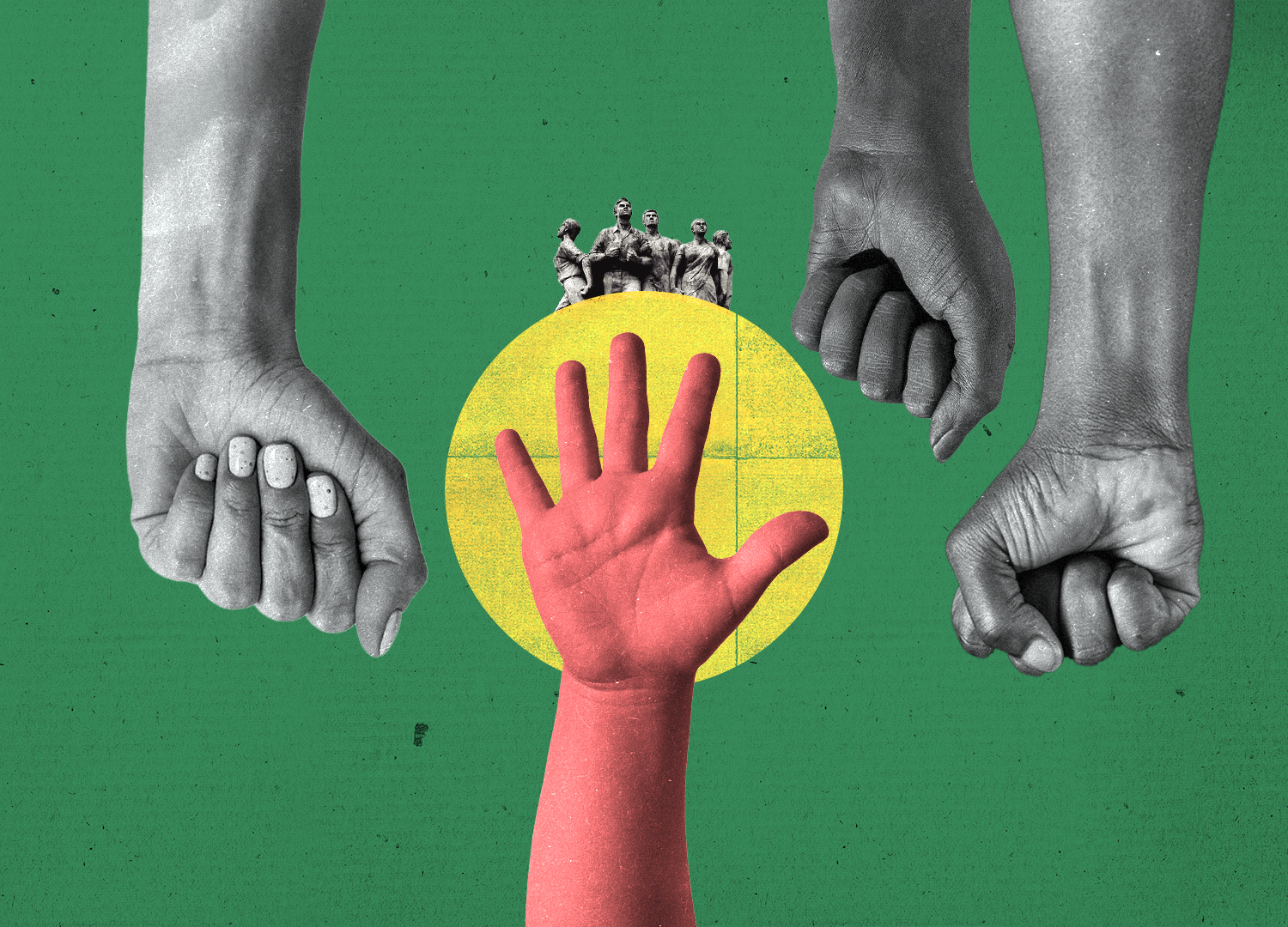Bangladesh’s new rebel heroes

Students in Bangladesh started protesting for public jobs to be allocated based on merit — as opposed to quotas, especially those reserved for descendants of war veterans — first in 2008, and then again in 2013 and 2018. The quota system was dismantled in 2018 but reinstated by a High Court judgement in June 2024, instigating the current wave of protests.
Student uprisings have played a key role in Bangladesh’s history, with figures such as Rafique, Salam, Barkat, Jabbar, and Shafiur celebrated as rebel heroes, who died facing police fire on 21st February 1952 while demanding recognition of Bangla as an official language of the then-Pakistan.
In the current quota reform protests, images of students such as Abu Sayed, who stood fearless with arms outstretched before being shot by the police, are going viral on social media. These images illuminate rebellion against oppressive power as a form of radical politics instigating social change.
By studying the recent student protests in Bangladesh as a powerful instrument of South Asia’s political imagination, we can understand how the dynamics between power and rebellion create new heroes and influence social transformation.
The act of rebellion goes beyond refusing to stay silent in the face of rights violations; rebels take a stand above all else, proclaiming it preferable to the status quo, even to life itself. The cause for rebellion then becomes a ‘supreme good,’ a refusal to compromise, a zero-sum game: it’s all or nothing.
Thus, Abu Sayed’s figure looms large in public consciousness as a rebel who sacrifices his life to the cause of ‘good’. As a last resort, he accepts death itself rather than being denied the rights that represent true freedom for many students like himself — believing it is ‘better to die on one’s feet than to live on one’s knees.’ (Camus, 1951).
Student protesters hold powerful cultural and social positions in Bangladesh and can assume a heroic role that has the potential to mobilise political transformation. Versions of Abu Sayed’s image, standing with arms outstretched when he was shot, are going viral on social media and news outlets. These include a sketch of his heroic stand by Kausik Sarker, an image of him in front of Bangladesh’s flag denoting his sacrifice for the country, and the same image accompanied by lines from Bangladesh’s national poet Kazi Nazrul Islam’s poem “The Rebel.”
Much like the image of Martin Luther King delivering the “I Have a Dream” speech or the raised fist for the Black Lives Matter movement, Abu Sayed’s image has come to symbolise an empowered rebel standing against authority. He symbolically represents the marginalised class within a capitalist power structure run by upper-class elites.
Female students, too, have taken a central role in the movement.
The images of young women in Bangladesh’s protests have shifted from photographs of a blood-drenched, beaten, and injured young woman to crowds of female students marching and chanting slogans.
Schoolgirls were seen chanting for quota reform, and some women use innovative tactics like mixing chilli powder with water to spray on those who attack them during protests.
These scenes are reminiscent of the protests of Iranian women against the Islamic Revolution and the recent Citizenship Law protests in India, where women were at the frontlines fighting for Muslims in India.
But these protests are less an iconography of female empowerment and more a shameful reminder of the failure of those perceived as more powerful than these young women, demonstrating that they are capable of fighting for their rights despite the violence against them.
With rebellion, awareness is born.
The heroic iconography of Abu Sayed and the image of Tonnii Akhter, a young woman drenched in blood, has proved influential in mobilising young people’s political power in Bangladesh. These images reaffirm that being a rebel is a precondition for survival or living a life worth living for these young people.
They are so powerful that even the diaspora jumped into action. Bangladeshi communities abroad have been carrying out peaceful demonstrations, discussions, teach-ins, and petitions in solidarity with Bangladeshi students in various parts of the world.
It is the student rebels’ anger that has the power to start a tsunami against injustice, and when the water rages, the landscape must change.●
Dr. Nazia Hussein is a senior lecturer at the School of Sociology, Politics, and International Studies at the University of Bristol, UK.